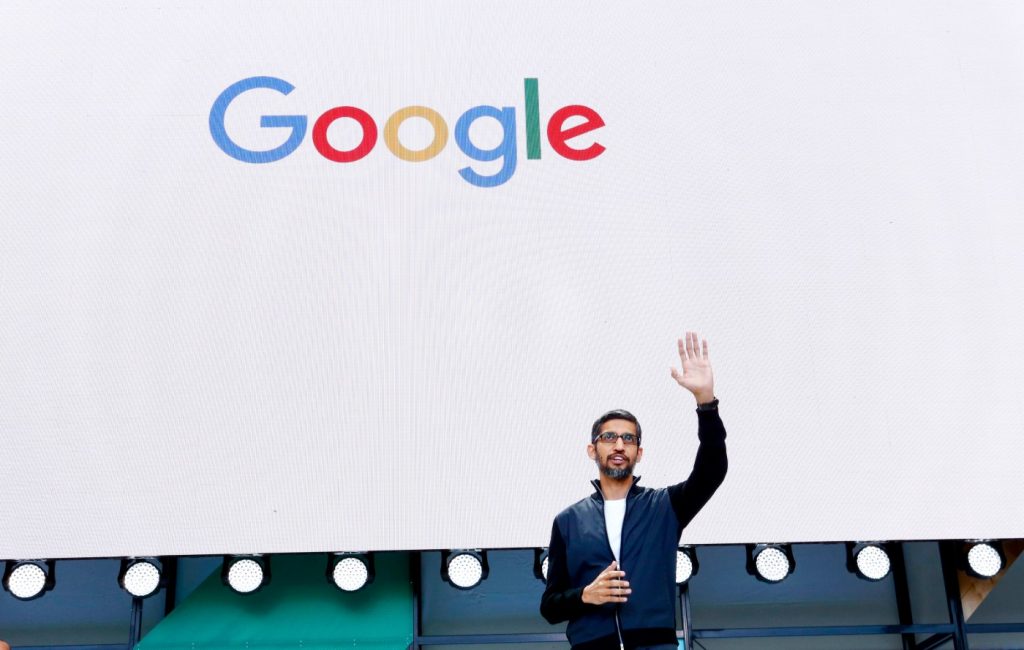A high-ranking Google director was texting with two of the company’s executives about digital-ads prices when he mentioned that the changes they were discussing could lead to lawsuits. Suddenly, he realized the chat’s history function was on, so the conversation would not be automatically deleted, and could be found by adversaries in any legal actions.
“History is on, jesus,” the director texted. “Sigh.”
Incidents like this, filed as evidence in three ongoing anti-monopoly cases brought against Google, have highlighted what state and federal authorities say are the Mountain View technology giant’s long-running machinations to conceal and destroy internal communications that could be used by regulators or against it in court.
The tactics led a Virginia federal court judge to conclude that an “awful lot of evidence has likely been destroyed,” and provoked a San Francisco federal court judge to criticize Google for lying to the court and deliberately hiding evidence from opponents.
“It’s like they’ve developed their own moral code, and that moral code is to justify whatever decisions they make,” said Jason Kint, CEO of Digital Content Next, a trade association representing online publishers, who has been closely following the cases.
Google said this week it takes seriously its “obligations to preserve and produce relevant documents” in legal actions, and highlighted a 2022 court filing from the San Francisco case in which it said it had “fully complied” with obligations to produce documents “by taking robust steps to preserve relevant chats.” Judge James Donato did not agree.
Donato, in San Francisco federal court, said he will punish Google over destroyed evidence. Virginia federal court Judge Leonie Brinkema has yet to decide whether to sanction the company over what she described as “a whole bunch of problems with how Google approached the preservation of evidence.” In District of Columbia federal court, Judge Amit Mehta, who ruled in August that Google holds an illegal monopoly on internet search, declined to punish Google for what he saw as extraordinary efforts to prevent a paper trail, ruling that sanctions would not change his assessment of the company’s liability.
Once they have reasonable grounds to believe internal communications may be sought by another party in a lawsuit, companies are legally required to keep them, whether legal action has started or not.
“The federal courts in particular have very high expectations about the care and prudence with which corporate America needs to preserve documents,” said UC Berkeley law school lecturer John Steele, a specialist in legal ethics and professional liability. Federal judges, Steele said, “typically want to see commitment from high levels in a company” that evidence is preserved.
Google used two tactics to keep unfavorable information out of court, according to judges in current anti-monopoly cases: letting employees discuss matters related to lawsuits or possible lawsuits on a messaging platform in which chats would be deleted by default, and encouraging employees to inappropriately add lawyers to discussions in an effort to hide communications under the doctrine of attorney-client privilege.
In all three cases, Google is fighting desperately to avoid being broken up as a monopoly, and judges have frowned deeply upon its handling of evidence.
San Francisco: California and three dozen other states and Epic Games against Google
Last year in San Francisco U.S. District Court, Judge Donato, presiding over an anti-monopoly lawsuit targeting Google’s Play app store, described Google’s suppression of evidence as “the most serious and disturbing” he had seen as a judge.
In a court filing, the states and Fortnite computer game publisher Epic accused Google of maintaining “a company-wide culture of concealment coming from the very top, including CEO Sundar Pichai.” Entered as evidence was an internal group chat while Google was already being sued in which Pichai wrote “can we change the setting of this group to history off,” then failed nine seconds later to delete the “incriminating message,” according to the plaintiffs.
Google left employees with no legal expertise “largely on their own” in sorting out which chats needed to be kept, and “did nothing” to monitor chat preservation, Donato wrote in his March 2023 decision.
The company “intended to subvert” the process of providing materials to its lawsuit opponents, and evidence was “lost with the intent to prevent its use in litigation,” Donato wrote. Google also “falsely assured” the court it had protected evidence and was “not truthful” about chat settings, the judge said.
Google pledged in a February 2023 court filing to turn chat history on for its nearly 400 employees whose communications are subject to mandatory retention in the case, with no ability to turn history off, Donato said in his order.
In December, a jury in the case found Google held an illegal app-distribution monopoly. The judge said he would use court-ordered sanctions to punish Google over deleted chats.
Virginia: U.S. government, California and 16 other states against Google
It was in the Virginia federal court lawsuit alleging Google holds an illegal monopoly on digital ads that the director’s comment about history being on was filed as evidence. An August court filing by the plaintiffs accused Google of making its internal chats delete by default after 24 hours starting in 2008, a change announced in a memo from its lawyers that opened with reference to “significant legal and regulatory matters.” The company continued the policy until early last year, two weeks after the lawsuit was filed, the filing said.
In a Nov. 5 filing, the federal government and states tied Google’s tactics to its market dominance, claiming it trained workers “to abuse the attorney-client privilege and destroy documents” in order to protect its alleged monopoly.
Judge Brinkema, overseeing that case, said in an August hearing that Google employees added lawyers into discussions as a “smokescreen” to invoke attorney-client privilege. She called the maneuver a “clear abuse.”
Google this week pointed to its August filing in that case that noted the 2008 memo told employees to “take steps to preserve relevant Chat messages,” and added: “That is the opposite of an intent to destroy evidence.”
District of Columbia: U.S. government against Google
Related Articles
Pixel phones have updated hardware and integrated AI
Bay Area judge rules Meta, Google, TikTok must face schools’ addiction claims
How Republicans pushed Silicon Valley to stop fighting election misinformation
Want to talk to a dead loved one? Researcher is teaming with Google to study AI-powered “generative ghosts”
Google endorses California GOP Rep. Issa’s bill to reveal funders backing lawsuits
Another anti-monopoly lawsuit against Google, over internet search, saw D.C. federal court Judge Mehta state in August that he was “taken aback by the lengths to which Google goes to avoid creating a paper trail” for regulators and legal foes. The judge cited auto-deletion of chats, and noted that Google instructed employees “dealing with a sensitive issue” via email to include a lawyer, mark the message “attorney/client privileged” and “ask the lawyer a question.” Workers “assiduously followed that advice,” and as a result, Google’s legal team at first withheld tens of thousands of purportedly privileged records it later handed over to the plaintiffs, Mehta said.
Mehta, in his August ruling, said his decision not to punish Google “should not be understood as condoning Google’s failure to preserve chat evidence.”
Google, the judge warned, “may not be so lucky in the next one.”


